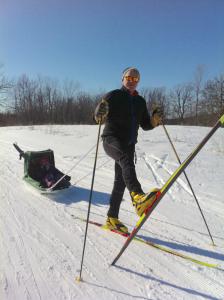Chiropractic Health & Wellness Blog
Shoulder pain
February 18, 2013
 |
People aged 40 years and older, and women in particular, are more likely to experience shoulder pain "frozen shoulder," which can be caused by injury to the rotator cuff that leads to immobility. Adhesive capsulitis (the medical term) involves inflammation of the watertight sac, known as capsule, which bathes the shoulder in nutritious fluid. When irritation caused by throwing leads to chronic inflammation, scar tissue may develop within and around the joint. Adhesive capsulitis can progress to the point where the shoulder is rendered immobile, hence the name "frozen shoulder", causing shoulder pain. The key to effectively treating this condition is early intervention. Proper shoulder function and motion can be restored by addressing both joint mechanics and supporting muscles.
Chiropractors have helped many people experiencing the immobility and pain from a "frozen shoulder." visit Lyn Lake Chiropractic 2937 Lyndale Ave South, Minneapolis, Mn 55408 and discuss your treatment options. Call 612-879-8000 Quick read more or view full article for an appointment. Most insurance accepted. We offer custom rehabilitative exercise combined with gentle chiropractic adjustments. The answers you need. The care you deserve.
P.S. "Active release" muscle therapy's aim is to reduce the scar-tissue "stickiness" associated with "frozen shoulder" by "breaking up" scar tissue with precisely applied tension in combination with specific patient movements. Read Less
Chiropractors have helped many people experiencing the immobility and pain from a "frozen shoulder." visit Lyn Lake Chiropractic 2937 Lyndale Ave South, Minneapolis, Mn 55408 and discuss your treatment options. Call 612-879-8000 Quick read more or view full article for an appointment. Most insurance accepted. We offer custom rehabilitative exercise combined with gentle chiropractic adjustments. The answers you need. The care you deserve.
P.S. "Active release" muscle therapy's aim is to reduce the scar-tissue "stickiness" associated with "frozen shoulder" by "breaking up" scar tissue with precisely applied tension in combination with specific patient movements. Read Less